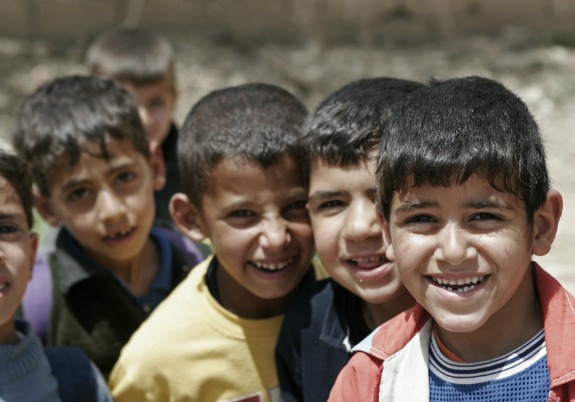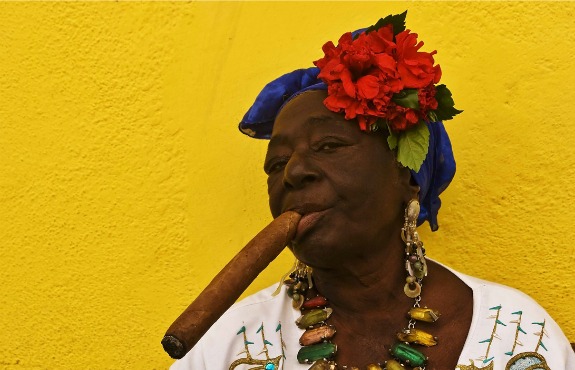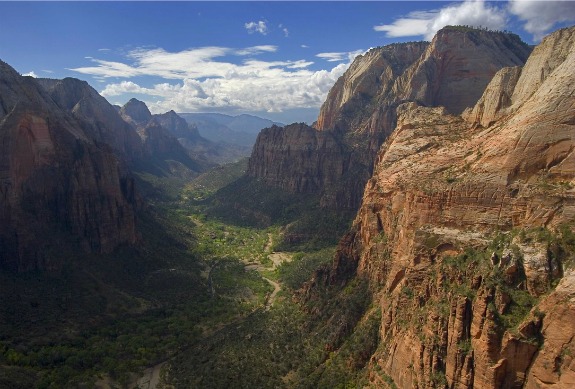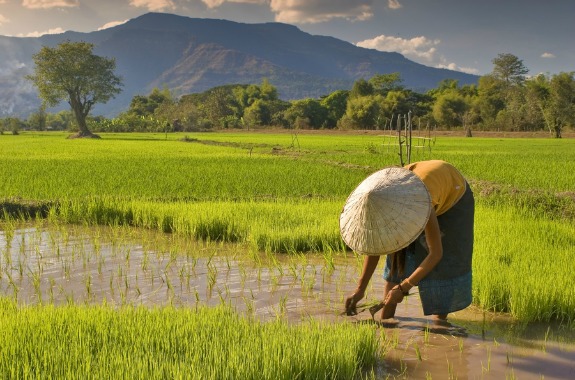Travel Photography: A Discussion With a Pro About Ethics and Techniques
The author discusses the ethics, joys and challenges of photography with Canadian travel photographer Matt Kadey
Asking this Laotian woman in advance for permission to take a photo might have spoiled the shot. Photo by Matthew Kadey.
In late February, I attempted to photograph a group of schoolchildren hiking home along the road, through green and beautiful mountain scenery in the Ecuadorian Andes. I did so furtively from behind, hoping to get a candid shot of the five, who were holding hands as they walked. To my alarm and embarrassment, one of them glanced back and called out an abrupt alarm. All five of the kids screeched, hunched their shoulders, ducked their heads and hurried their step. I aborted my effort and offered a friendly wave as I passed them on my bicycle. I had discovered that the rumors of some cultures being leery of cameras are true—especially so, perhaps, for the Quechua people of the Andes.
I also began to think more concertedly about the greater subject of photography ethics. Is it fair, for instance, to photograph a person—any person—without asking permission? Is it legal? But can’t asking for permission also ruin the spontaneity of the photo? Meanwhile, is it appropriate to take a photo of another’s home, or their dog, or their property—or to take photos that exhibit one’s poverty or misery? To gain a clearer understanding of what’s right and wrong, accepted or shunned in travel photography, I spoke recently with Matt Kadey, a Canadian photographer, journalist and frequent cycle tourist.

Children, like these Jordanian boys, may be especially open to photography. Other children, like those of the Quechua culture in the Andes, may be less enthused by the sight of a camera. Photo by Matthew Kadey.
Must you ask permission to take a stranger’s photo?
Landscape and human photography are two really different things. When you’re taking photos of people, you should get permission. I always try to ask, and if they don’t speak English, you can maybe just show them the camera and see if they say yes. But, at a street market, for example, you can’t always ask, “Hey, you mind if I get a quick shot of you handing over the money to that guy for that fruit?” You just have to take the picture. If you know you might want to publish it, and you think you’ll need permission, you have to do it right away. Once you get home, you have no idea where that person lives or how to contact them.
Can requesting permission compromise the nature of a photo?
Definitely. That’s the problem. You might want to take a shot of a guy wearing some huge hat, and if you ask him if you can take his photo, he might take off the hat and pose because he thinks you shouldn’t be wearing a hat in a photo, and then you’ve lost the shot you wanted. What I’d rather do is spend some time with them, like eating lunch with them, and get to know them a little, and then they probably won’t mind if you start taking some photos. Or, you can ask them afterward. People usually like it when you show them the photo you took. But I’m definitely guilty of not asking at times. Sometimes you have 150 kilometers to go, and you see a great shot, take the picture and just keep moving. But my girlfriend has pointed out to me how it must feel. Imagine if you’re on your porch and some guy from China walks up with a camera, sticks it in your face and takes a picture and walks off.
Must a tip be offered to a subject?
I don’t always feel right paying money for photos, but if I’ve spent some time with someone, like a farmer at the side of the road, and I’ve taken a bunch of photos, I might offer him a couple of dollars. It sort of depends, but I definitely am wary if someone wants money right away. It feels like dirty money, and I’ll usually just put the camera away.
I’ve read recently about so-called starvation photography, and it makes me wonder: Do you have any personal limits on what photos of human suffering you will and will not take?
We came across traffic accidents in Burma recently , and I saw no reason why I’d want a photo of a person on the ground.

Photographers must not be shy. It requires getting up close and personal to produce shots like this one of a woman in Cuba. Photo by Matthew Kadey.
Do you feel self-conscious taking photos of people?
I definitely have. You worry about offending someone, but it’s something you need to get over if you’re a serious photographer. Most people are too shy to take good human photos, but I’m not going to take a long trip somewhere and not take those photos. But I’ve definitely felt awkward at times. I have this camera with a giant lens and I’m up in their face with it. The key is how you deal with it afterward. You might stay around for a while and show them the picture. I’ve been in Southeast Asia by the road with a group of women, showing them a photo of themselves and everyone’s laughing about it.
Does photography tend to distance you from the locals? Or can it effectively serve to bridge a gap?
I think as long as I interact with the locals before and after taking the photos that it can be a great way to interact with them. For example, when they don’t speak English and I don’t speak the native tongue, I can show them the photos on the camera screen and sometimes that is enough to put everyone at ease. The key is not to take a million photos of someone and seem like a greedy photographer. It’s important that I demonstrate that I am actually interested in them and not just grabbing a great photo of them.
Is it easy to be a photographer and ride a bicycle?
Being on a bicycle definitely lets you get better shots. You can get out to areas where people have never interacted with tourists before, and those people aren’t going to ask you for money if you start taking photos. And with cycle touring, you can easily be the only photographer in a certain place, whereas at a location where the tour buses come, there might be 40 people taking a shot of the same temple at the same time. In places, you might look around and say, “Oh my God, there are a million photos being taken here.” If you’re on a bike, you don’t encounter that kind of situation very often. You might even go to the tourist attractions but, since you’re on a bike, just get there before the buses get there.
Has digital technology made photography easier?
I think you actually have more work to do now after you get home, and you definitely have more photos to look through when they’re digital. With film, each shot counted more, and there were less of them. Another problem for a photographer now is that there are so many images out there, often for free, and people are less willing to pay for photos.
Say you get home and you have a photo that’s almost perfect. Is it ever OK to digitally finish an image?
I have no problem with doing that as long as it isn’t majorly changing the photograph. If the photo has a dark spot on the sky because of some spec on the lens, it’s fine to remove it. You’re just touching it up, and it’s still the exact same photo. What I wouldn’t ever do is cut and paste something into the image that wasn’t there before.
When was the last time you used film?
We were in Ireland in 2003 or 2004, and that was the first time I only had a digital camera with me.
Can photography ever distract you from experiencing people or places?
Yes, and my girlfriend reminds me of that all the time. It’s true. You just need to put down the camera sometimes. Say you’re walking through a market. Every tourist is taking photos, and a whole experience can get diluted if you’re looking through a camera lens the whole time. There are definitely days when you just have to say, “OK, today I’m not taking any pictures.” You might occasionally have to break that resolution if you see an incredible shot, but if you miss it and you have four more weeks of traveling, you can be pretty sure you’re going to make up for it.

Landscapes can be the easiest subjects to shoot. They may also be the hardest, and shots like this one of a canyon in Arizona may represent hundreds of throwaways. Photo by Matthew Kadey.
Editor’s Note: Vote for your favorite travel photograph from the finalists of our 10th Annual Photo Contest!
/https://tf-cmsv2-smithsonianmag-media.s3.amazonaws.com/accounts/headshot/Off-Road-alastair-bland-240.jpg)

/https://tf-cmsv2-smithsonianmag-media.s3.amazonaws.com/accounts/headshot/Off-Road-alastair-bland-240.jpg)